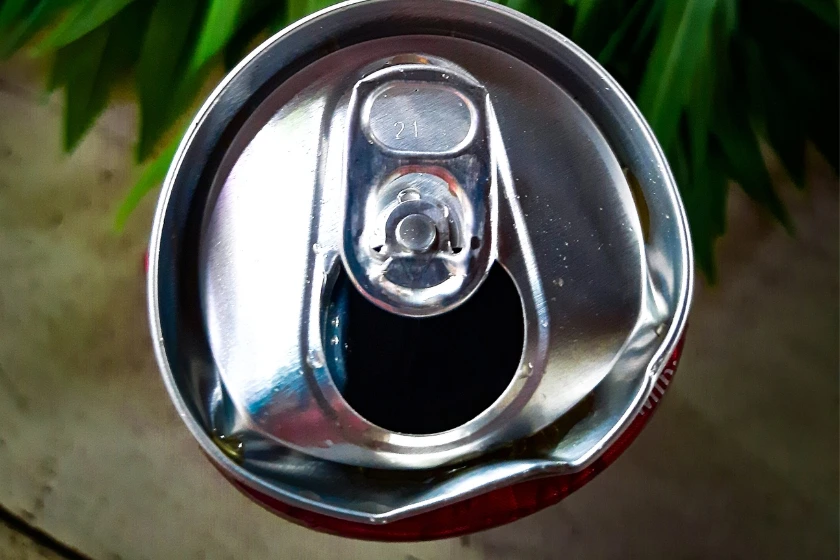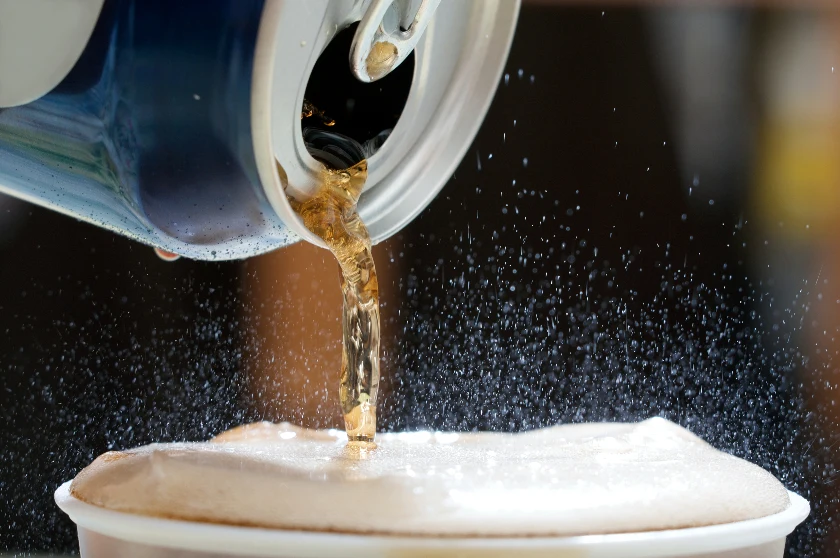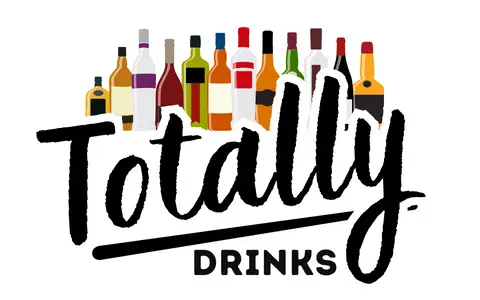Dented soda cans are sometimes the only ones left on the shelf, sometimes they are sold off for cheap, and sometimes you’ve done the denting yourself after dropping them. If you’ve got no other option and you are dying for some quick refreshment, I’ve done some research on whether dented soda cans are safe to drink and how to tell.
Provided there are no signs of punctures or other major damage, it’s generally safe to drink from a dented soda can. Most food safety organizations do not consider minor dents on canned food and drinks to be significant health risks.
However, there are still some important things to keep in mind before drinking from a damaged pop can. In this article, I’ll check out the potential risks associated with a dented can of soda, including botulism and bacteria growth, and ways to tell when a can is bad.
@DietCoke opened my 12pk and one can very dented, noticeably lighter & dried up soda on the rest. 😢 pic.twitter.com/4sBvAKaXZL
— Mindy Gallagher (@mindygallagher) February 5, 2016
Is It Safe To Drink Out Of A Dented Soda Can?
First of all, have a good look around the can first and check what the damage actually is and how bad before opening it.
Generally speaking, if the damage is minor – such as creases or slight dents – then it should be safe to drink. But if it’s severely damaged with sharp edges or distorted shapes, the USDA recommends throwing it away and grabbing a new drink.
Dents on any seams or joints of the can are more critical as these are weak points that can create small holes when damaged.
Also make sure you check for any sign that the contents has leaked out due to it being punctured in some way. If you find any signs of stickiness or staining, then toss the can in the trash.
When a can gets dented or otherwise damaged, this can compromise its ability to keep its contents free of outside contaminants. Any liquid inside could potentially become unsafe to drink, so it pays to give each dent careful inspection before popping open the top.
- Related article: Is A Dented Beer Can Safe? (how it differs from a dented soda)
What Happens To A Soda Can When It Is Dented?
A dent in your favorite can of fizz can compromise its structure, which may lead to leaks and even ruptures.
When the can is filled and sealed at the factory, the soda is under a lot of pressure, which helps keep the carbon dioxide dissolved until it’s opened.
When dents occur this pressure is disturbed, temporarily causing the carbon dioxide to become less soluble – making it foam up or gush out when opened.
Also, dents can create weak spots in the metal which can cause it to become punctured or otherwise damaged – leading to contamination of the liquid.
In addition, there have been some studies that show that dented aluminum cans can potentially leach a small amount of aluminum into the contents. Of course, this takes a long time and is unlikely to be at levels that cause any issues, but is something to be aware of.
The severity of the damage is key here: small dents usually don’t pose too much of a health risk and cans are typically safe to drink from; however, severely deformed cans should probably be disposed of.

How Can You Tell If A Dented Soda Can Is Bad?
The easiest way to tell if the contents have gone bad because of a dented can is to first inspect the outside of the can to see if there is any sign of leakage.
Check for sticky areas or staining around the damaged area and also around the ring pull on the top.
This is probably the most important thing to do as a leaking soda pop means that it’s no longer airtight, and could very well now be contaminated. Pour the contents down the drain and recycle the can if this is the case.
It would be a good idea to check that the drink is still within the sell-by date at this point and again, dispose of it if not.
If everything looks fine on the outside then it’s time to carefully open it and check the contents.
Signs that the contents may be spoiled are:
- No noticeable fizz when you open it – this means air has got in as unopened soda can go flat.
- Doesn’t look right – pour the soft drink into a glass to see if it still looks normal.
- Unusual smell or taste – another good sign that things are not right. Always judge smell before tasting it.
If it fails any of those checks then it’s better to be cautious and discard the drink.
Can You Get Botulism From Soda Cans
While dented cans can compromise the quality of the drink, it’s extremely unlikely that they will grow the Clostridium botulinum spores to cause botulism as soda is too acidic.
The World Health Organization notes that Clostridium botulinum will not grow in acidic conditions with a pH of less than 4.6. Sodas are typically very acidic (Coca-Cola has a pH of 2.5).
Botulism is also very rare, with only 145 average cases in the US a year, and is prevented by high-quality standards in preparation and canning.
This bacterium is present in various places such as soil, dust, and marine sediments, but can become foodborne, especially in poorly processed or home-canned food.
So, while dented cans should still be inspected carefully and their contents discarded if there is any sign of leakage or contamination, there is very little chance of them causing botulism.
@CocaCola_ZA so the Cream Soda I just bought is dented 😣 and Ive been warned that i cant drink it #sadness pic.twitter.com/6piMA5z2gw
— ꂦ꒒ꀤ꒦ꀤꍏ ꅐꀤ꒒꒒ꀤꍏꎭꌚ (@LdotTheLeo) December 7, 2015
Can Bacteria Grow In Soda?
When it comes to unopened cans of soda, bacteria isn’t really a concern as the containers are sealed using industry-standard techniques. However, once the seal is broken and the contents are exposed to air, bacteria have the potential to take root and spoil your drink.
According to some recent studies, there are only a few types of bacteria that can grow in the highly acidic, highly carbonated, low-oxygen environment of a soft drink, mainly certain lactic acid and acetic acid bacteria.
Usually, these will require other nutrients to survive such as those found in fruit juice based sodas and a spoiled drink will be easily identified by an off-smell and/or appearance.
Bacteria are more likely to grow in drinks with more microorganisms from fermentation like in a dented beer can. This spoilage will often release carbon dioxide so the can will bulge out.
If you are unsure remember to judge by pouring it into a glass to check it, then smell it and finally taste it.
- Related article: Should You Wash Cans Before Opening? (read about germs, rats, and bugs)
What Causes Bulging Soda Cans And Are They Safe?
A bulging soda can is caused by a number of things such as:
- Being frozen – freezing causes the water molecules in the soda to expand and pop out sections of the can, usually the bottom.
- Exposed to high heat – if you leave a soda can in a hot car this can cause the internal pressure to rise, causing it to pop the base.
- Being dropped – sometimes if you drop a can, it can cause the bottom to pop out due to the sudden change in pressure.
- Contamination – in rare cases, bacteria growth or fermentation could happen which causes pressure to build in the can. Soda doesn’t have favorable conditions for this, so it’s more likely in cans of beer.
Unless you know why the can has bulged, for example, because it happened while in your possession, it’s very much a personal choice on whether you still want to drink it.
Personally, I would probably discard it unless I was sure about the cause, but as long as it has not started leaking, then it may well be fine to drink.

Final Thoughts
I hope you’ve found my article on whether it’s safe to drink from a dented soda can useful.
Just to recap, it’s always a good idea to inspect dented soda cans carefully before drinking the contents and dispose of them if there are any signs of leakage or contamination. Similarly, bulging cans should be checked over to determine why they have become deformed and discarded if necessary.
If everything looks ok then it may be fine to drink, but always remember to stay safe and use your own judgment. It’s usually better to be cautious and throw the soda away than risk drinking something that may have been compromised.
